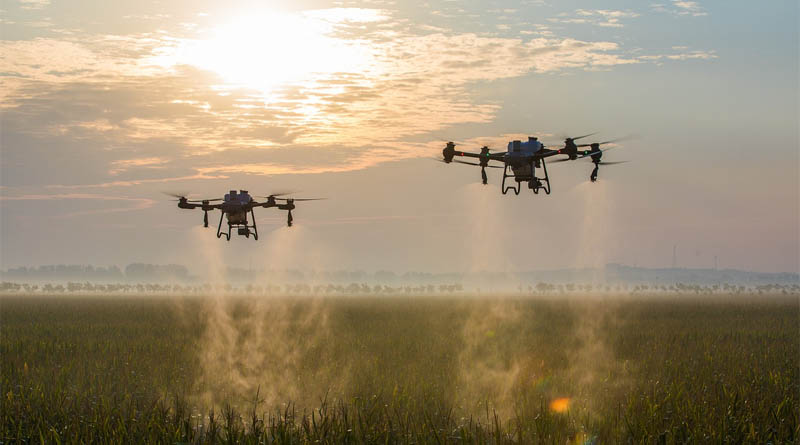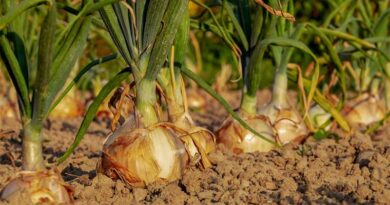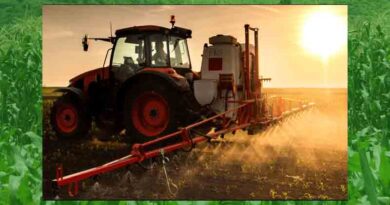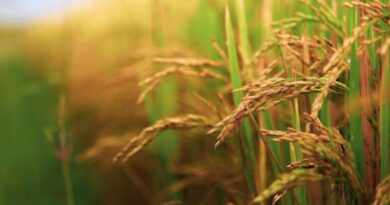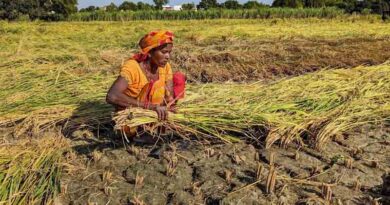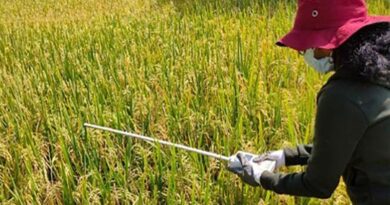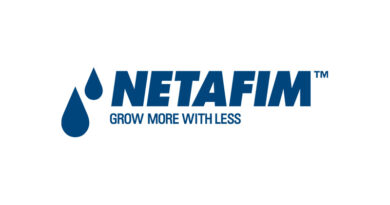Agriculture’s Connected Future: Harnessing Generative AI in Farmland
Guest Author: Dr. Ashish Agarwal, Co-Founder & CTO, WRMS
22 July 2023, New Delhi: In today’s rapidly evolving world, technological advancements are revolutionizing various industries, and agriculture is no exception. With the growing global population and increasing demands for food production, the agricultural sector faces numerous challenges, including the need for efficient resource management, sustainable practices, and improved yields. Fortunately, the emergence of generative artificial intelligence (AI) offers a promising solution to transform the future of farming.

Generative AI, a subset of AI that focuses on creating new and original content, has the potential to revolutionize farming practices by enabling data-driven decision-making, optimizing resource allocation, and enhancing productivity across farmland. By leveraging the power of machine learning algorithms, predictive models, and advanced sensor technologies, agriculture’s connected future holds great promise in addressing critical challenges and unlocking new opportunities for sustainable food production.
This article explores the transformative potential of generative AI in the realm of agriculture, shedding light on its applications and benefits in the context of farmland. We will delve into the ways in which generative AI can assist farmers in making informed decisions, optimizing resource allocation, and implementing precision farming techniques. Additionally, we will explore how AI-powered sensors, drones, and robotics can work in tandem to create a connected ecosystem, enhancing efficiency, productivity, and sustainability throughout the agricultural value chain.
From optimizing irrigation schedules based on weather predictions to precisely identifying nutrient deficiencies in crops, generative AI has the potential to revolutionize traditional farming methods and pave the way for a more sustainable and productive future. However, as with any technological advancement, challenges and considerations must be addressed, including data privacy, ethical concerns, and the need for continuous research and development.
As we venture into the era of agriculture’s connected future, it is crucial to understand the potential of generative AI and its implications for the farming community. By harnessing the power of this cutting-edge technology, farmers can unlock new possibilities, optimize resource utilization, and contribute to the global efforts of sustainable food production. Join us as we explore the groundbreaking role of generative AI in shaping the future of farmland and paving the way for a more efficient, connected, and sustainable agricultural landscape.
In the context of farmland, harnessing Generative AI can offer several benefits and applications:
● Crop Yield Optimization: Generative AI can analyze vast amounts of historical agricultural data, including weather patterns, soil quality, crop health, and yield data. By identifying patterns and correlations within this data, it can generate insights to optimize crop yield. This information can help farmers make data-driven decisions, such as adjusting irrigation schedules, identifying optimal planting times, or predicting disease outbreaks.
● Precision Farming: Generative AI can aid in the implementation of precision farming techniques. By processing real-time data from sensors, drones, and satellites, it can generate accurate maps and models of farmland. These models can then be used to identify areas with varying soil fertility, water stress, or pest infestation. Farmers can make targeted interventions, such as applying fertilizers, adjusting irrigation, or deploying specific treatments, based on the AI-generated insights.
● Crop Breeding and Genomics: Generative AI can analyze genetic data from crops and generate new variations or combinations with desirable traits. By simulating the effects of different genetic combinations, AI can help accelerate the breeding process, resulting in crops that are more resistant to diseases, pests, or environmental stresses. This can lead to improved crop varieties that are better suited to local conditions and offer higher yields.
● Pest and Disease Detection: AI algorithms can be trained on vast amounts of data related to pest and disease symptoms, including images of affected plants. Generative AI can then generate models that can identify and classify various pests and diseases accurately. This can help farmers detect and respond to outbreaks more quickly, reducing the need for broad-spectrum pesticides and minimizing crop losses.
● Supply Chain Management: Generative AI can also be utilized to optimize the supply chain in agriculture. By analyzing data related to transportation, logistics, and market demand, AI can generate models that optimize routes, reduce transportation costs, and minimize food waste. This can lead to more efficient and sustainable distribution of agricultural products from farm to consumer.
Summing-Up
While Generative AI holds significant potential in agriculture, it’s important to address potential challenges. These include ensuring data privacy and security, addressing biases in the AI models, and providing access to AI technologies for small-scale farmers.
By harnessing Generative AI in farmland, agriculture can benefit from increased productivity, improved sustainability, and enhanced decision-making capabilities. With continued advancements and responsible implementation, Generative AI can contribute to a connected future for agriculture.
Also Read: LI-COR onboards new distributor DTPLENVIRO Techsolutions to expand its presence in India
(For Latest Agriculture News & Updates, follow Krishak Jagat on Google News)

